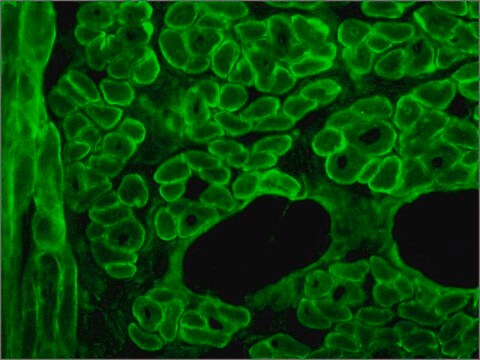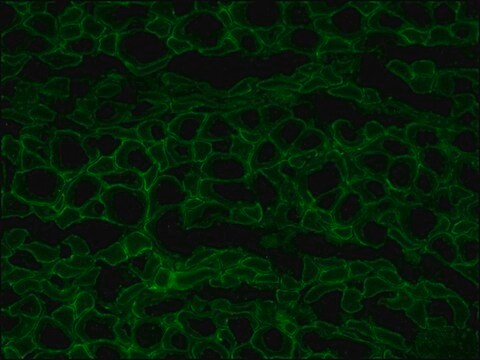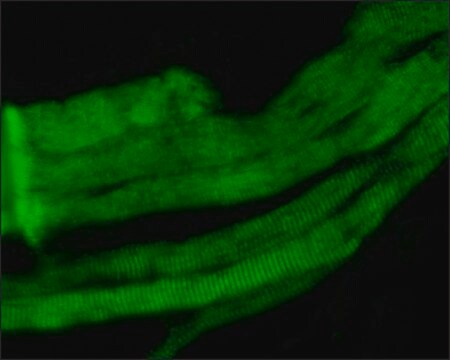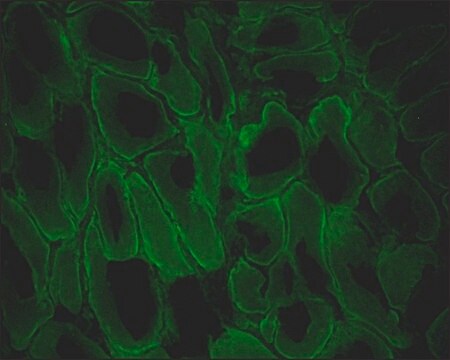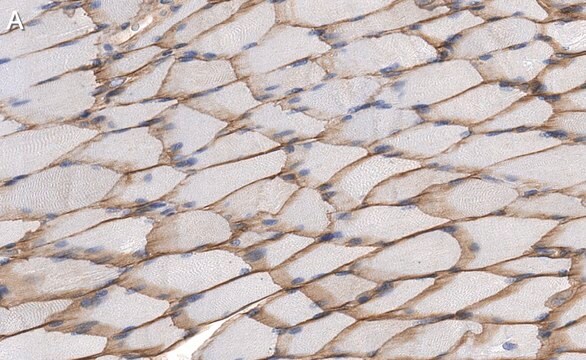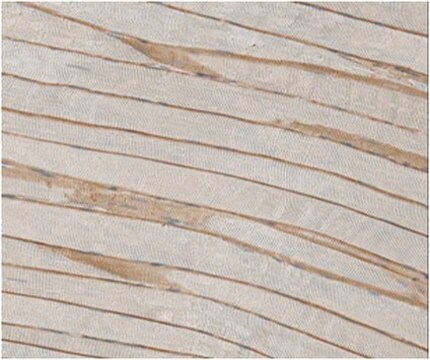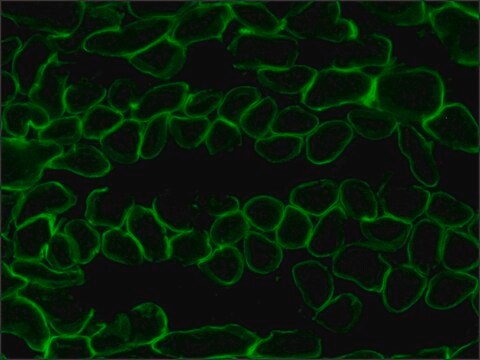SAB4200764
Anti-Dystrophin antibody, Mouse monoclonal

clone MANDYS8, purified from hybridoma cell culture
Synonym(s):
Anti-DMD
About This Item
Recommended Products
biological source
mouse
Quality Level
antibody form
purified from hybridoma cell culture
antibody product type
primary antibodies
clone
MANDYS8, monoclonal
form
buffered aqueous solution
mol wt
~427 kDa
species reactivity
porcine, rabbit, mouse, rat, human
enhanced validation
independent
Learn more about Antibody Enhanced Validation
concentration
~1.0 mg/mL
technique(s)
immunoblotting: suitable
immunohistochemistry: 5-10 μg/mL using acetone fixed rat tongue frozen sections
isotype
IgG2b
UniProt accession no.
shipped in
dry ice
storage temp.
−20°C
target post-translational modification
unmodified
Gene Information
human ... DMD(1756)
General description
Specificity
Immunogen
Application
Biochem/physiol Actions
Physical form
Other Notes
Not finding the right product?
Try our Product Selector Tool.
recommended
Storage Class Code
12 - Non Combustible Liquids
WGK
nwg
Flash Point(F)
Not applicable
Flash Point(C)
Not applicable
Choose from one of the most recent versions:
Certificates of Analysis (COA)
Don't see the Right Version?
If you require a particular version, you can look up a specific certificate by the Lot or Batch number.
Already Own This Product?
Find documentation for the products that you have recently purchased in the Document Library.
Our team of scientists has experience in all areas of research including Life Science, Material Science, Chemical Synthesis, Chromatography, Analytical and many others.
Contact Technical Service